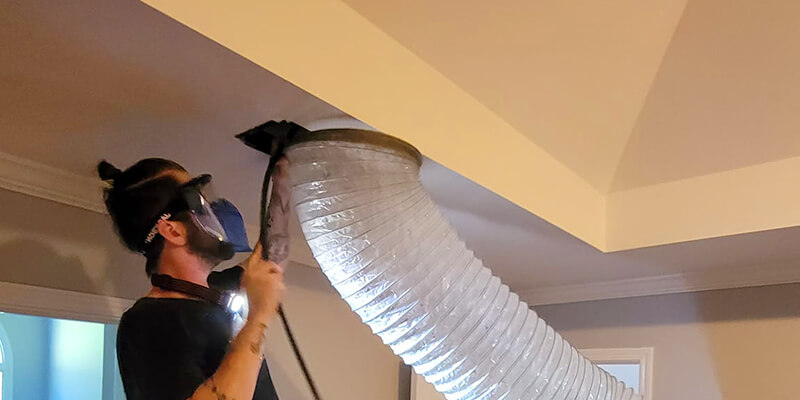Lets dive deep into the world of HVAC systemsa critical component for many homeowners and business owners. It’s essential to know how these systems work to maintain a comfortable environment. However, there are numerous misconceptions surrounding HVAC systems. Ever asked yourself, which statement about an HVAC system is false? You’re not alone, and this article aims to clarify those misconceptions.

Understanding HVAC Systems
Heating, Ventilation, and Air Conditioning (HVAC) systems are crucial for indoor comfort. They regulate temperature, ensure proper air quality, and provide warmth or cooling as needed. A well-maintained HVAC system can lead to a tremendous improvement in indoor air quality and energy efficiency.
Purpose of HVAC Systems
The primary function of an HVAC system is to provide thermal comfort and acceptable indoor air quality. Not only do they control temperature, but they also manage humidity levels and improve air quality through ventilation.
Common Misconceptions About HVAC Systems
Misconception 1: HVAC Systems Are Only Used for Heating
Many people believe HVAC systems are only for heating, but that’s far from the truth. These systems are designed to provide both heating and cooling, ensuring year-round comfort.
Misconception 2: Changing the Filter Once a Year Is Sufficient
A common misunderstanding is that you only need to change the HVAC filter once a year. In reality, the filter should be changed every 1-3 months to maintain optimal performance and air quality.
Misconception 3: Bigger HVAC Systems Are Better
Its a common belief that a bigger HVAC system will perform better. However, an oversized system can lead to inefficiency, frequent breakdowns, and higher energy costs.
Misconception 4: Duct Cleaning Isn’t Necessary
Some people think duct cleaning isn’t necessary, but clean ducts are crucial for maintaining good air quality and system efficiency. For more information, you can check this seal HVAC system.
Key Components of HVAC Systems
Heating Component
One of the critical components of an HVAC system is the heating element, which often includes furnaces or heat pumps. These elements are responsible for generating and distributing heat throughout your space.
Ventilation Component
The ventilation part of an HVAC system is tasked with exchanging indoor and outdoor air, ensuring that fresh air circulates within the environment. Proper ventilation can also help remove pollutants and moisture, improving overall air quality.
Air Conditioning Component
The air conditioning unit is vital for cooling indoor spaces. It removes excess heat from the interior and transfers it outside, helping to lower the indoor temperature to a comfortable level.
Choosing the Right HVAC System
Assessing Your Needs
Before selecting an HVAC system, its essential to understand your specific needs. Different environments and requirements will dictate the type of system best suited for you.
Energy Efficiency
An energy-efficient HVAC system can save you money and benefit the environment. Look for units with high SEER (Seasonal Energy Efficiency Ratio) ratings to ensure optimal performance.
Maintaining Your HVAC System
Regular Inspections
Routine inspections and maintenance are crucial for keeping your HVAC system in top condition. Regular checks can help identify potential issues before they become significant problems.
Cleaning and Replacing Filters
Ensure you clean or replace the HVAC filters every 1-3 months to maintain good air quality and system efficiency. This simple step can prevent many common issues associated with HVAC systems.
Duct Cleaning
Clean ducts play a crucial role in maintaining an efficient HVAC system. You can learn more about the importance of duct cleaning in this EPA guide.
Common Problems and Solutions
Problem: Inconsistent Temperature
Solution: Inconsistent temperatures could indicate a problem with your thermostat or HVAC system. Consider recalibrating your thermostat or checking for air leaks.
Problem: Strange Noises
Solution: Unusual noises from your HVAC system may signal loose parts or mechanical issues. It’s essential to get these noises inspected promptly.
When to Seek Professional Help
Regular Maintenance
While some HVAC maintenance tasks can be performed by homeowners, regular professional maintenance is recommended for thorough inspections and servicing.
Emergency Repairs
When your HVAC system breaks down unexpectedly, its crucial to seek professional help to get it back up and running quickly. Delaying repairs can lead to more severe damage and higher costs.
Future Trends in HVAC Technology
Smart HVAC Systems
With advancements in technology, smart HVAC systems are becoming more popular. These systems offer enhanced control, energy efficiency, and convenience through smart thermostats and remote access.
Eco-Friendly Options
Theres a growing trend towards eco-friendly HVAC solutions. These systems use sustainable materials and energy-efficient technologies to minimize their environmental impact.p>
Conclusion
Understanding the intricacies of HVAC systems is crucial for homeowners and business owners alike. By dispelling common misconceptions and providing practical advice on maintenance and selection, this article aims to empower you with the knowledge needed to make informed decisions about your HVAC system.
FAQs
1. How often should I service my HVAC system?
It is recommended to service your HVAC system at least once a year. Regular maintenance ensures your system operates efficiently and helps identify potential issues early. Learn more about flushing your HVAC system
2. What are the signs my HVAC system needs repair?
Signs that your HVAC system needs repair include inconsistent temperatures, strange noises, unpleasant odors, and reduced airflow. If you notice any of these issues, its essential to contact a professional. Check how to flush HVAC system
3. Can I clean my HVAC ducts myself?
While you can perform basic cleaning tasks, such as vacuuming vents, its best to leave thorough duct cleaning to professionals. Proper cleaning requires specialized equipment and expertise. Learn more about sealing your HVAC system